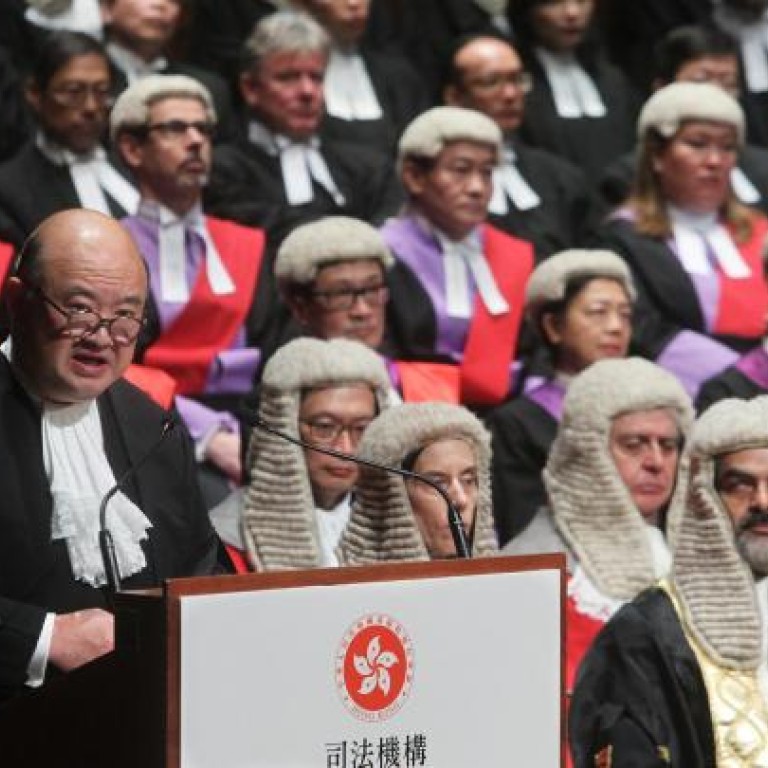
Right of abode? What about the right to wear wigs, ask lawyers
Law Society keen to preserve time-honoured tradition
Litigation over the right of abode may be a prime concern in legal circles, but Chief Justice Geoffrey Ma Tao-li has another headache to work on: should solicitors be allowed to wear wigs in court like barristers?
The Law Society, with more than 8,000 solicitors as members, deems the wearing of wigs essential in helping to ensure justice is done.
But the Bar Association, which represents more than 1,100 barristers, thinks otherwise.
The disagreement stems from a new arrangement that will see solicitors representing and speaking on behalf of their clients in hearings in the High Court and Court of Final Appeal as early as April - alongside their barrister counterparts.
Other than judges, only barristers have the right to wear the 17th-century horsehair attire.
Stephen Hung Wan-shun, chairman of the Law Society's criminal law and procedure panel, said he was worried a difference in attire between barristers and solicitors could influence the perception of jurors serving in criminal trials.
"Our biggest concern is criminal hearings involving a jury," Hung said. "We would like to avoid any chances [of prejudice or unfairness]."
The Bar Association begs to differ. "It will confuse the public about the difference between the two specialities," chairman Kumar Ramanathan SC said. "If they want to wear wigs, why don't they call to the bar?"
Ramanathan disagreed that jurors might find solicitors less authoritative and convincing because they did not wear wigs. "It's just a sense of insecurity, and not the reality," he said.
The fashion originated in France in the 13th century after Henry III took to wearing one to hide his premature baldness.
While Hong Kong solicitors now want to don wigs, Britain started a debate a decade ago on whether to scrap the headgear among barristers.
Criminologist Stanislaus Lai Ding-kee, of City University, said the historical symbol of power should not be extended to solicitors, though he agreed some jurors might find it confusing if some legal advocates wore wigs while others did not.
"But the quality of jurors is not so low that they would associate higher authority with someone just because of a wig," he said.

